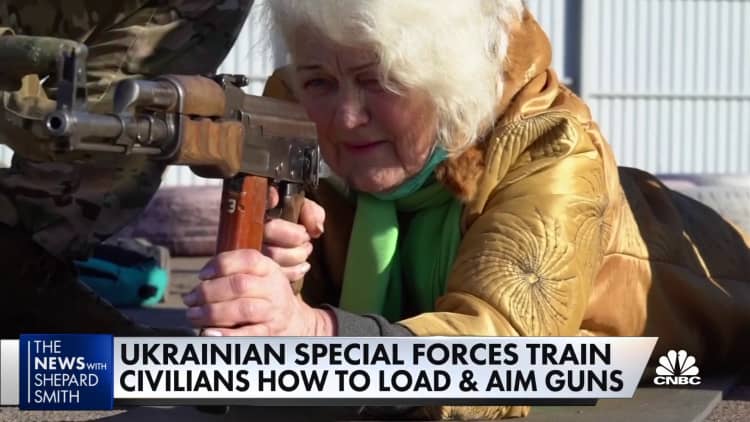WASHINGTON – More than 3,000 American soldiers who were recently deployed to Poland are working with authorities there to prepare for a potential wave of people fleeing Ukraine if Russia invades the country, a Pentagon spokesman said Monday.
"Assistance with evacuation flow is something that they could do, and could do quite well," said Defense Department spokesman John Kirby. "And they're going to be working with Polish authorities on what that looks like and how they would handle that."

Kirby noted that the American troops are versatile and capable of many missions. But his admission that preparations are underway for a potential influx of refugees from Ukraine offered the first real glimpse of how U.S. soldiers might be used in the region.
Kirby reiterated Biden's pledge that American troops would not be fighting in Ukraine.
This latest tranche of soldiers, approximately 3,000 troops who arrived in Poland over the past four days, are part of a larger group of 82nd Airborne Division troops that President Joe Biden ordered to deploy to the NATO-allied country as part of the joint defense alliance.
Both the United States and its European allies made concrete preparations Monday to defend NATO members and protect civilians as military action by Russia grew increasingly likely.
Later this week, Secretary of Defense Lloyd Austin will visit Poland himself, part of a broader trip to Europe that will include a NATO ministerial meeting on Wednesday and Thursday in Brussels.
Russian President Vladimir Putin "continues to advance his readiness" for an invasion, said Kirby, and is "doing all the things you would expect him to do" if he were to decide to take military action.
There are more than 100,000 Russian troops stationed on their borders with Ukraine. Russia claims it is merely engaged in military exercises with its ally, Belarus.
But Kirby said it "strains credulity" to believe that so many soldiers would be deployed and positioned all around Ukraine if this were indeed an exercise.
Meanwhile, Secretary of State Antony Blinken ordered the U.S. Embassy in Kyiv to close Monday, and directed embassy staff to relocate to Lviv, a city in western Ukraine.
"We are in the process of temporarily relocating our Embassy operations in Ukraine from our Embassy in Kyiv to Lviv due to the dramatic acceleration in the buildup of Russian forces," Blinken said in a statement.
"I have ordered these measures for one reason -- the safety of our staff -- and we strongly urge any remaining U.S. citizens in Ukraine to leave the country immediately," said Blinken.
State Department spokesman Ned Price said later Monday that the Biden administration feels its decision to relocate the U.S. embassy in Ukraine is "absolutely necessary."
"It is a distinct possibility, perhaps more real than ever before, that Russia may decide to proceed with military action," Price said.
He noted, however, that the U.S. has still not concluded that an invasion is inevitable. "We believe that there still remains a window to resolve this" through diplomacy, Price said.
Price added that "meticulous planning" preceded the move to Lviv, nearly 300 miles west of Kyiv.
U.S. intelligence officers who briefed allies last week reportedly said that a Russian invasion may begin on Wednesday Feb. 16.
On Sunday, national security advisor Jake Sullivan did not deny the report, first published by Politico. But he said the United States "cannot perfectly predict the day."
This is a developing story, please check back for updates.



